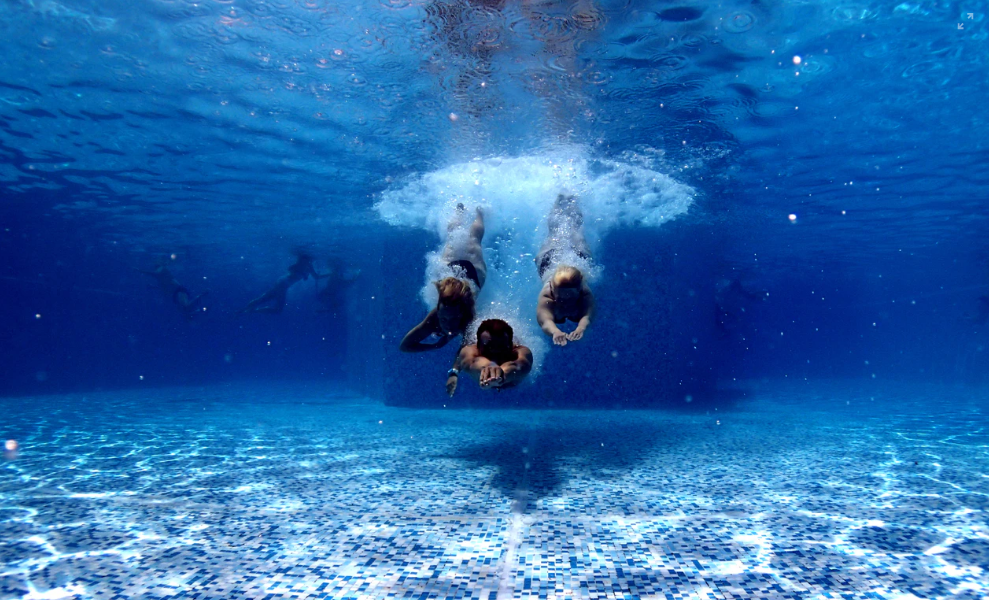
Hotel swimming pools are a big lure for guests booking and looking to go on vacation. However hotel swimming pools can become the brunt of a lot of bad press in the event of an unfortunate accident or injury in the hotel swimming pool area. Most importantly, as a hospitality focused business the care and safety of your customers should be top of mind, and anything you can do to promote this hospitable service is a win for your hotel.
A news article about an accident or lawsuit due to a swimming injury is sure to negatively impact the guests enthusiasm to book and stay in your facility. Your hotel swimming pool can be both the best marketing tactic and the worst if you don’t follow proper Illinois Swimming Pool Codes and lifeguard laws and regulations.
As a hotel manager or facilities coordinator, if safety and hospitality are a priority for your success, you’ve probably wondered: Do your hotel swimming pools need lifeguards? The quick answer is, yes, and here’s why.
Signs Aren’t Enough
Hotel owners often think if they post warning signs around the pool area of “slippery services” and “swim at your own risk” that they are therefore unliable for any occurrences at the pool. However, this is simply not the case. Hotel swimming pool liabilities in the event of an accident are complex and tricky. Even with a hotel’s intention to display proper signage, a successful lawsuit against your hotel for premise or product liability is still a possibility.
Premise liabilities often include a lack of proper warnings, safety equipment, dysfunctional gates and a lack of supervision. It’s difficult to guarantee that all signs remain in plain sight, untouched and easily readable. If the sign placement is at all out-of-sight or legibility of the sign has been affected in any manner, it doesn’t help your guests or your own case in a lawsuit. Signs must also be supported with proper pool safety regulations like a functioning gate to enter the premises and easily identifiable safety equipment. Though signs usually say that an adult be present with any child in the area, it is not a good assumption that this supervising adult knows CPR, has read the posted signs and has identified the safety equipment. This can leave your pool area and guests unaware and unfortunately open to unmanageable situations.
Product liabilities can include a crack in the flooring from wear and tear, a broken railing or a drain in need of repair. These product liability problems can happen quickly without obvious notice. A designated lifeguard in the premise is often able to spot these issues as soon as they arise before it’s too late and they cause an accident. Professional pool designers can advise on these regulations, but a lifeguard presence is a hotel’s key to ensuring proper function of all safety installations and pool equipment at all times.
For a detailed description of all hotel swimming pool liabilities review the Illinois Swimming Facility Act.
Even Good Swimmers Have Accidents
To avoid tragic accidents, anyone swimming should have basic swim skills. However, the likelihood that this is always the case is extremely low. And the likelihood that people believe they are better swimmers than is actually the case is extremely high. Even if someone is a pretty good swimmer this doesn’t exclude them from an unfortunate accident. Good swimmers can experience a health problem, an accidental fall or be the subject of an unforeseen pool area malfunction.
If you don’t already know, drowning is not the dramatic portrayal commonly shown on television. Drowning is often silent without even a splash, meaning that by the time another adult in the area sees what is going on, it is often too late. Lifeguards are trained to watch for the small details and signs that indicate a problem in the water. The reality is you shouldn’t leave it up to your guests to determine if they are personally a “good swimmer,” and you shouldn’t count on your guests to save themselves or someone else’s life in your pool property and under your roof. Part of hospitality is anticipating your guests unforeseen needs and be prepared at all times to respond accordingly to the best of your ability, which is only possible with a properly trained and certified lifeguard present.
Lifeguard Effectiveness
A well-trained and certified lifeguard will provide your guests and yourself with a sense of security in their training to be prepared and respond in any situation. Having a lifeguard on duty will help ensure that your hotel pool is not at risk for common hotel swimming pool liabilities including negligence of supervision alongside another set of eyes on your pool equipment and area.
However, when hiring a lifeguard it is crucial that they are properly certified. Don’t hire your nephew to put on a suit and watch the pool. When hiring a lifeguard double check their credibility and certification. Hotels with under qualified lifeguards could result in additional liability factors. Make sure it is someone trustworthy who also cares deeply about your guests and enforce strict rules on cell phone restriction to avoid distractions.
Here’s a great guide as you look to hire a lifeguard on Lifeguard Management.
Drowning remains the leading cause of unintentional deaths for children ages one to four, with Illinois as the 5th highest number of pool and spa drownings in the country according to statistics from the summer of 2018. Experienced commercial pool designers, like Sunset Pools & Spas, can help in discouraging pool accidents by advising on Illinois swimming pool codes throughout the design and renovation of your hotel swimming pool. However, Sunset Pools & Spas highly recommends hiring a lifeguard and pool management team in addition to the design strategy to ensure the enjoyment and safety of your hotel guests.
